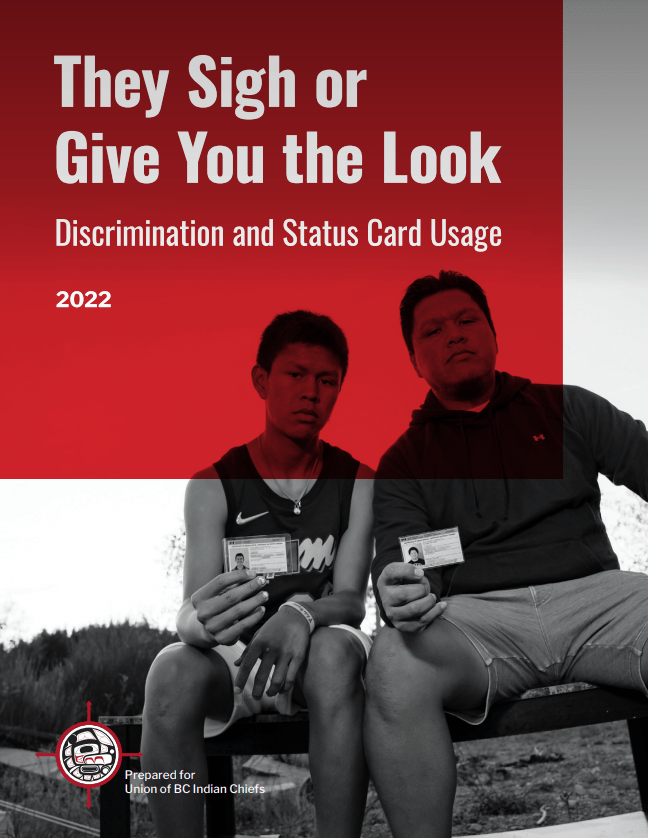6 search results
for
Discrimination and hate
Basic standards from the federal government
Recommendation 1: Clearly renounce the racism that status First Nations experience when using this form of identification.-
Category and theme:
Audience:
Groups affected:
Location of recommendation:
Enhance training for retailers and service providers
Recommendation 10: In retail context in particular:- Establish clear and efficient workflows for status card use, to make this common experience more seamless for all involved.
- Ensure training about the tax exemption, and how to appropriately process the tax exemption.
- Ensure orientation to expected behaviours of staff when processing a status card – including definitions, examples, and negative consequences for displaying racism, discrimination, stereotyping, and microaggressions.
-
Category and theme:
Audience:
Groups affected:
Location of recommendation:
Improve media stewardship
Recommendation 11: Cease reiterating misinformation about status cards and instead utilize and publish links to reputable sources of information about status cards as explainers or background.- First Nations political organizations should consider creating materials suitable for newsroom staff about the genesis and purpose of status cards.
-
Category and theme:
Audience:
Groups affected:
Location of recommendation:
Improve media stewardship
Recommendation 12: Take seriously their responsibility for comment moderation, both on news sites and when shared to official social media channels.-
Category and theme:
Audience:
Groups affected:
Location of recommendation:
Improve media stewardship
Recommendation 13: Employ credible editorial tools (e.g., Reporting in Indigenous Communities riic.ca) to reduce the continued feeding of anti-Indigenous stereotyping in news headlines and articles.-
Category and theme:
Audience:
Groups affected:
Location of recommendation:
Continue to study and monitor change
Recommendation 14: Although the experience of racism in the use of status cards is near-universal amongst status First Nations, and the mention of status cards elicits overt and numerous racist responses in online forums, there is very little data collected, studies published, or indicators monitored about this experience. Increasingly, there is broad policy support for the collection and monitoring of race-based data to support equity and dignity for all persons. Future work pursuant to this study should continue, and specifically:- Be a matter of focus of human rights offices and associated studies.
- Indicators and data collection about experience in the use of status cards, and outcomes data related to the experience of racism, should be embedded in surveying and performance monitoring at local, regional, provincial, and national levels, including by First Nations governments in their primary data collection and research projects. These should consider the unique experiences of LGBTQ2S+ persons as well as other groups that are experiencing intersecting and compounding forms of oppression and discrimination.
- Be tied to clear action plans and accountability for change.
- Be rooted in Indigenous data sovereignty.
-
Category and theme:
Audience:
Groups affected:
Location of recommendation:
